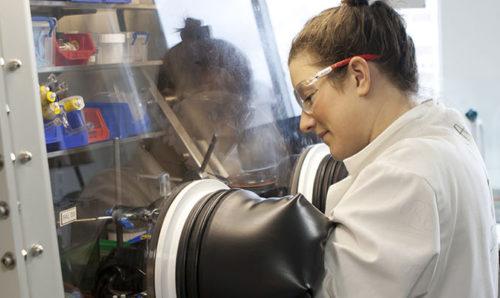Nuclear aspirations and uncertainties
Blog 1st December 2017
Author: Penny Harvey, Professor of Social Anthropology, School of Social Sciences, The University of Manchester
I came to the field of nuclear research indirectly, via a long term interest in ethnographic approaches to ‘modernity’ and the ‘modern state’. Nuclear materials are firmly located in this vector of modern science and modern statecraft but they also routinely exceed the human ambition to contain and constrain their material and/or social force. It is this tension between human aspiration and the uncertainties that characterise human nuclear futures that draws me to this topic as a vital site for contemporary social research.
My original research as a Ph.D. student of anthropology at the London School of Economics was focused on the politics of everyday communication in the Peruvian Andes. Living alongside peasant farmers and small traders in an Andean settlement a day’s journey from the city of Cusco along a dangerous and dusty road, I tried to work out how bilingual speakers engaged the communicative potential of the two languages available to them: Quechua and Spanish. My dissertation ‘Language and the Power of History’ argued against the prevailing understanding of bilingual code-switching as the strategic manipulation of symbolic resources. This approach relied on a modernist and categorical separation of two ‘national’ languages or codes. I became more interested in how these separations were enacted – how Spanish and Quechua could come to appear self-evidently different and discrete when, in practice, everybody that I engaged with had simply learnt to speak as children in an environment where these categorical distinctions were not always so visible, where one language leaked into the other, where discrete grammars, syntax and vocabulary were ideal forms rather than lived realities. Gradually I learnt to attend to the tensions between the linguistic categories or codes that were deployed and enforced in state institutions (particularly schools, law courts, and municipal offices) and the dynamic mixed language that characterised people’s everyday speech practices. Theoretically, this work led me to think more deeply about expertise, knowledge practices and the modern fascination with ‘sorting things out’. All this in an environment where modern institutions, and schooling in particular were highly respected – but also somewhat suspicious. The values of different ways of speaking were always under negotiation, they emerged in the course of social interaction – sometimes effortlessly, but sometimes through overt struggle and confrontation. In short my early work on language led to an enduring fascination with the politics, ambiguities, uncertainties and the affective force of expressive form.
I was initially inspired to extend these interests to encompass technology by a short study that I carried out at the Expo or World’s Fair, held in Seville in 1992. I had gone to that event curious to find out more about how the Spanish state was going to ‘celebrate’ the 500-year anniversary of the conquest and subsequent domination and exploitation of the Americas. I left fascinated by how the exhibition of national ‘cultures’ had subtly been transposed into narratives of technological progress. In Hybrids of Modernity: Anthropology, the nation state and the universal exhibition (Routledge, 1987) I discussed the diverse ways in which anthropology, the nation state and the universal exhibition (three profoundly modernist institutions) were engaged in the objectification of culture – and how they in turn became objects of cultural theory. I began to think about how ‘culture’ is produced and put to work by national and corporate participants at the Expo, and about the tensions between representational knowledge and knowledge as embodied practice that the event revealed.
By 2005 I was back in Peru with my colleague Hannah Knox – this time thinking about knowledge and expertise, and working on an ethnographic study of two major construction projects, one of them set to transform that dangerous dusty road out of Cusco into Peru’s first ‘transoceanic’ highway. We conducted ethnographic research on two roads living with the engineers, scientists, bureaucrats, construction workers, and the residents of the regions that these roads were intended to transform. We followed public debate, particularly engaged by the histories and the projections, the aspirations and the fears that large-scale infrastructure projects provoke. Our book, Roads (Cornell 2015), became the basis for a whole strand of research at the ESRC Centre for Research on Socio-Cultural change where with colleagues from diverse social science, humanities and organisational studies backgrounds, we initiated a programme of research on ‘infrastructures’, and more recently ‘mega-projects’ – exploring the intersecting worlds of regulation, expertise, politics and material agency. It was this interest in the potential for thinking about social worlds through a focus on the dynamic transformative potential of materials that led me to the nuclear, and to the entanglements of nuclear science with markets, with warfare, with regional economies, with hopes and expectations for green energy futures and with the historical legacies that underpin deep social fears of the destructive force of fissile matter.
About Penny Harvey
Penny is a Professor of Social Anthropology at The University of Manchester and Professor II in the Institute of Social Anthropology at the University of Oslo. She currently leads The Beam research project on Holistic Decommissioning in the Nuclear Reprocessing Industry. Read more.





Leave a Reply